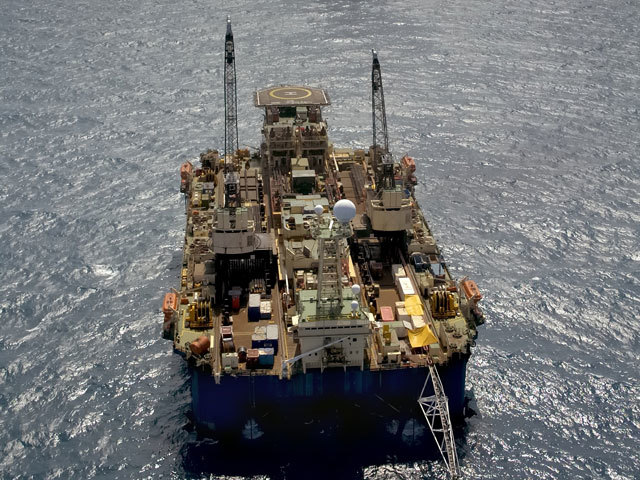
A four-decade-old ban on crude exports from the U.S. will survive another year, the chairman of the US House’s Energy and Commerce Committee said.
Policy makers need time to decide whether to lift the 1975 prohibition on exporting most crude, “and that won’t happen this year,” Fred Upton, a Michigan Republican, said yesterday at an energy conference in Washington. The US allows shipments of refined products including gasoline and diesel.
Lifting the prohibition on exports would help alleviate a glut of oil building up along the US coasts as hydraulic fracturing and horizontal drilling help producers pull record volumes of crude out of shale formations across the middle of the country. The boom has propelled domestic output to the highest level since 1986 and earlier this year sent stockpiles of the feedstock to a record on the Gulf Coast.
“We need to ask a lot of questions, and I don’t think anyone expects us to move on it this year,” Upton told the 2014 EIA Energy Conference organized by the Energy Information Administration in Washington. “The president of course could do so, but we’re not anticipating any movement this year.”
The House passed legislation last month to expedite the approval of requests to export liquefied natural gas. Upton said he doesn’t know how long it will take for Congress to take up crude exports.
“With LNG, we asked a lot of questions, and we moved it in regular order,” Upton said. “The proof is in the pudding that we ended up with a bipartisan bill.”
Pioneer Natural Resources Ltd. and Enterprise Products Partners LP said last month that the U.S. Commerce Department approved their plans to export ultra-light crude known as condensate. The product is heated in stabilizers and distillation towers, which qualifies it as a refined fuel eligible for shipping abroad, they said.
Senator Lisa Murkowski, ranking Republican member of the Senate Energy and Natural Resources Committee, is scheduled to meet today with Commerce Secretary Penny Pritzker to discuss easing restrictions on oil exports.
Any major policy change is unlikely before the Nov. 4 midterm elections, Daniel Yergin, vice chairman at IHS Inc. and author of The Quest, said by phone yesterday from Washington.
“They’re concerned particularly in an election year about doing anything that others would say affected the price of gasoline,” he said.
US production of crude, along with liquids separated from natural gas, surpassed all other countries this year with daily output exceeding 11 million barrels in the first quarter, Bank of America Corp. said in a report July 4. The nation became the world’s largest natural gas producer in 2010.
Crude exports from the US increased to 268,000 barrels a day in April, Energy Information Administration data show. That’s the highest level in 15 years.
Recommended for you
